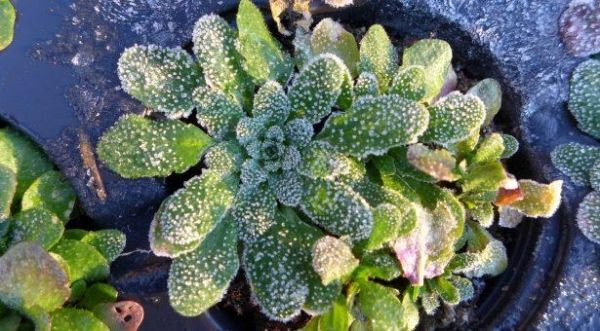The first frost of autumn may be grim for gardeners but the latest evidence reveals it is a profound event in the life of plants.
The discovery may affect how we grow crops in a fluctuating climate and help us better understand molecular mechanisms in animals and humans.
Much of our understanding of how plants register temperature at a molecular level has been gained from the study of vernalization – the exposure to an extended period of cold as a preparation for flowering in spring.
Experiments using the model plant Arabidopsis have shown how this prolonged period of cold lifts the brake on flowering, a gene called FLC. This biochemical brake also involves another molecule COOLAIR which is antisense to FLC. This means it lies on the other strand of DNA to FLC and it can bind to FLC and influence its activity.
Read more at John Innes Centre
Image: Frost on Arabidopsis thaliana - new discovery may help us grow crops in fluctuating climate (Credit: John Innes Centre)


